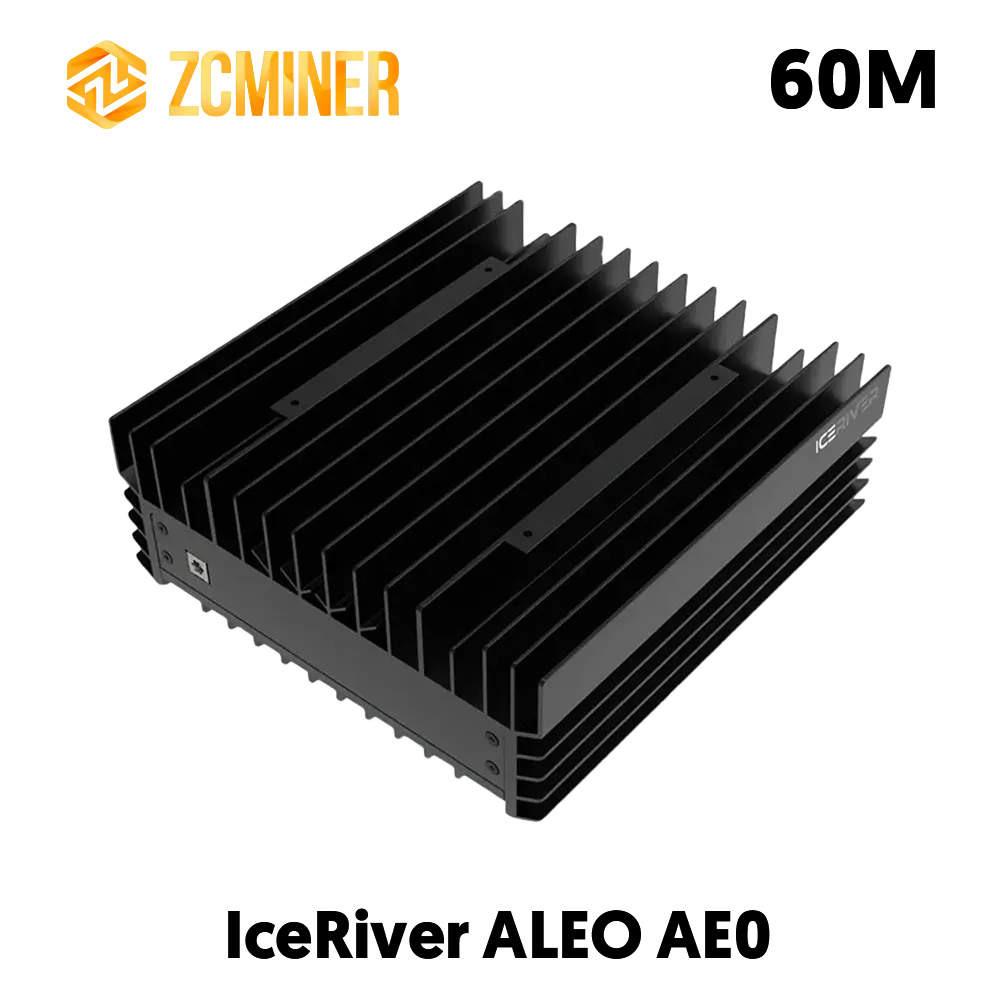OVERVIEW
With Bitcoin's price soaring to an all-time high of $111,970 in 2025 and other well-known cryptocurrencies like Ethereum exhibiting significant gains as well, many investors from around the world expressed interest in cryptocurrency investing. Understanding the tax consequences of cryptocurrencies is essential to increasing your bitcoin profits, even if many people were interested in taking advantage of the spike in prices.
Depending on the kind of transaction, investment in cryptocurrencies may be subject to either regular income tax or capital gains tax. For example, you might not have to pay taxes if you contribute cryptocurrency. Generally speaking, though, cryptocurrency investments are subject to taxes. Therefore, being aware of the crypto mining tax will enable you to use the appropriate tactics, reap long-term benefits, and reduce tax liabilities.
In this helpful article, let's take a closer look at cryptocurrency mining taxes and how they operate in different nations.
Crypto mining: what is it?
Verifying and adding transactions to a Proof of Work (PoW) blockchain network, such as Bitcoin and Litecoin, is known as crypto mining. It is essential to preserving the integrity and security of decentralised virtual currencies.
Cryptocurrencies employ mining to verify that transactions are authentic and that new coins are added to the circulation, in contrast to traditional financial systems that depend on centralised authorities.
The procedure entails employing powerful computers to solve challenging mathematical riddles. The first miner to solve these problems wins the privilege of adding a new block to the network. They are rewarded with newly created bitcoin and transaction fees in exchange.
Crypto mining guarantees that all transactions are accurately recorded, avoids double-spending, and secures the network. It is resource-intensive, though, requiring a lot of electricity and processing power. It becomes more difficult to obtain rewards without specialised hardware, like as ASICs or powerful GPUs, as mining difficulty rises over time.
This energy-intensive crypto mining mechanism is used by almost all PoW-based cryptocurrencies, such as Bitcoin, Litecoin, and others. Nonetheless, a lot of more recent coins are switching to Proof of Stake (PoS), which uses less energy.
Comprehending Crypto Mining Taxes
Most governments tax cryptocurrency mining profits since they are considered income. When miners sell their cryptocurrency assets, they must pay capital gains taxes as well as taxes on their mining profits. Taxes on cryptocurrency mining, however, differ for pros and hobby miners. Additionally, companies may be eligible for tax deductions. Because tax implications vary depending on your work and interests, it is imperative to grasp them.
Regardless of the cryptocurrency they mine, cryptocurrency miners in the US usually pay taxes for the following.
- On their usual mining earnings
- when they sell the cryptocurrency tokens they have mined and earn a profit.
Once the cryptocurrency has been mined and placed in your wallet, you should pay taxes on it. The value of your cryptocurrency income, as determined by its market value at the time of earning, directly affects how much tax you must pay. Throughout the rest of the tax year, both gains and losses are subject to the tax.
If the value of the cryptocurrency you mined has increased by the time you sell it or otherwise get rid of it, you will also have to pay capital gains taxes.
Explained: Crypto Mining Taxes
The following situations make cryptocurrency mining taxable, as was discussed in the previous section.
- how much money you earn from mining incentives.
- the money you make from mining profits or selling your cryptocurrency holdings.
Crypto mining is frequently subject to two taxes. We will investigate both incidents.
1. Income Tax on Profits from Crypto Mining
You are liable for income tax on the taxable income you receive from mining rewards. On the day you get the prizes, you will be taxed at your regular income tax rate, which is determined by the awards' fair market value. Your cost basis, which is crucial for figuring out any capital gains or losses if you decide to sell or otherwise get rid of the cryptocurrency you mined, is also this fair market value.
2. Tax on Capital Gains
You may be liable for capital gains tax on the transaction if you subsequently sell, trade, or spend your cryptocurrency mining profits. The amount you sold them for or their fair market value at the time of disposal is subtracted from the cost basis, which is the fair market value on the date you got the incentives, to calculate your gain or loss.
You will be liable for tax on the amount if the outcome is a gain. You might be able to utilise it to lower your total tax obligation if it's a loss.
What tax percentage might you anticipate in each of these situations? The bottom line is your income. When mining incentives are obtained in the United States, they are subject to income tax rates of up to 37%, and any profits from their sale could be subject to capital gains tax of up to 20%.
Additionally, whether you mine cryptocurrency as a business or as a pastime will affect your tax. For example, let's say you work for yourself and your mining operations are considered a business or trade. If so, self-employment tax, which includes Social Security and Medicare contributions, may also be applied to the money you make from cryptocurrency mining. Depending on the legal framework you decide on for your mining business, this may change.
In order to benefit from deductions for business expenses linked to mining, many cryptocurrency miners in the United States choose to formally establish their mining operations as a business, either by incorporating or establishing a sole proprietorship.
Tax Deductions for Profits from Crypto Mining
Mining costs are easily deductible as business expenses if your cryptocurrency mining operations are established as a business. Operating a cryptocurrency mining company can be costly. Therefore, it might assist you in removing certain costs from your taxes if you believe that to be a business expense.
You can claim certain costs associated with cryptocurrency mining as tax deductions. The price of mining equipment, such as rigs and hardware, repairs and maintenance to keep the equipment operating effectively, electricity bills—which are sometimes high in mining operations—and even office space costs can all be considered deductible expenses. If you meet the tax rules, you can also be eligible for a home office deduction if you work from home.
To receive individualised advice on how to manage your mining operations in the most tax-efficient manner, it is strongly advised that you speak with a certified accountant.
How Can Crypto Mining Avoid Taxes?
The tax burden related to cryptocurrency mining can be decreased using a number of practical methods. Here are a few typical methods to think about.

1. Function as a Company
You can reduce your taxable income by operating your mining operation as a formal business, which allows you to deduct a variety of allowable business expenses such office space, repairs, power, and equipment.
2. Employ an IRA That Is Crypto-Friendly
Depending on the kind of IRA you select, investing through a self-directed IRA that accepts cryptocurrencies can result in either tax-deferred or even tax-free growth.
3. Put Tax-Loss Harvesting into Practice
In order to counterbalance financial gains from other investments, this technique entails selling cryptocurrency assets at a loss. It can assist lower your annual tax liability and is particularly helpful during market downturns.
4. Make Use of Crypto Tax Software
Automating transaction tracking and reporting is possible with the use of sophisticated crypto tax software. Additionally, it lets you use various accounting techniques to maximise your tax results.
5. Transfer to a Jurisdiction That Is Tax-Friendly
Some nations tax cryptocurrency income, including mining, very little or not at all. Depending on local laws, moving to a crypto tax haven may drastically lower or even eliminate your tax liabilities.
6. Give or Receive Crypto
Giving cryptocurrency to friends or relatives might help you avoid capital gains taxes, particularly if the recipient is in a lower tax band, and donating it to a qualifying charity may qualify you for a charitable deduction.
7. Sell When Income Is Low
Selling your cryptocurrency at a time when your income is lower will cut the tax rate on your capital gains and possibly put you in a lower tax band.
Since each of these tactics has its advantages and ramifications, it is advisable to consult a tax expert to ascertain which choices best suit your long-term objectives and particular financial circumstances.
Taxes on Crypto Mining in Different Countries
The majority of tax authorities handle cryptocurrency mining in a similar manner, while certain jurisdictions might make an exemption for hobby miners. To learn the laws that relate to you, it's a good idea to look into how cryptocurrency mining is taxed in various nations.

America
Because cryptocurrency is regarded as property for taxation reasons, depending on how you use it, you can be required to pay income tax or capital gains tax. You will typically be required to pay capital gains tax if you sell, trade, or spend cryptocurrency. Earning cryptocurrency through mining or staking is taxable as income.
Giving cryptocurrency to an approved charity may result in a tax deduction. How long you keep the cryptocurrency will determine how much tax you pay; short-term gains or crypto income can be taxed between 10% and 37%, while long-term profits are taxed between 15% and 20%. Collectible NFTs may be subject to a 28% tax.
Britain
Income tax is levied on mining prizes received by UK cryptocurrency miners, and capital gains tax is levied on awards sold, traded, spent, or given as gifts (with the exception of spouses). Different tax laws, including the potential for specific deductions, can be applicable if you conduct your mining operations as a business.
The Netherlands
Since gains from the sale of capital assets are not subject to taxation in the Netherlands, assets like cryptocurrencies are exempt from capital gains tax. Rather, cryptocurrency holdings are liable to a wealth tax-like notional tax that is determined by the value of the assets possessed.
A fundamental exception is in effect. This wealth tax does not apply to anyone with assets up to €57,000 (or €114,000 for tax partners).
Australia
Australia levies separate taxes on cryptocurrency mining companies and hobby miners. Hobby miners only pay capital gains tax on any gains resulting from selling, exchanging, spending, or giving mining prizes rather than income tax when they receive them. Profits from mining will be subject to both capital gains tax and income tax for business miners.
Germany
Cryptocurrencies are categorised as private money rather than capital assets in Germany. No tax is owed on gains if a person owns cryptocurrency for more than a year before selling, spending, or trading it. However, any profits over €600 are taxable if the cryptocurrency is kept for less than a year.
A number of other cryptocurrency-related activities are taxable in addition to short-term holdings. These consist of mining, earning cryptocurrency, selling staked assets, and staking cryptocurrency within a ten-year period. Furthermore, any cryptocurrency that is sold, traded, or spent within a year and yields earnings above €600 will also be subject to taxation.
Canada
Whether cryptocurrency mining is seen as a business activity or a pastime determines how it is treated tax-wise in Canada. When hobby miners obtain mining rewards, they are not subject to taxes; but, when they sell, trade, spend, or give away those rewards, they are required to pay capital gains tax on 50% of any profits. Individuals whose mining is categorised as a company, however, are required to pay income tax on the rewards' value at the time of receipt.
FINAL RESULTS
The tax laws pertaining to cryptocurrency mining are developing at the same rate as the industry itself. Knowing your local tax responsibilities is crucial to maintaining compliance and maximising your financial results, regardless of whether you're a hobbyist or operate a full-scale mining operation.
It is best to speak with a tax expert who is knowledgeable in both cryptocurrencies and the tax regulations in your nation, given the intricacy of crypto taxes. You can reduce your tax liability by being informed, keeping correct documents, and using legal tactics. You may concentrate on making money from mining while managing your tax obligations if you have the appropriate information and preparation.











Leave a comment
This site is protected by hCaptcha and the hCaptcha Privacy Policy and Terms of Service apply.